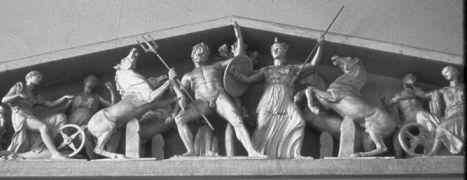
THEOGONY

How and why does Man worship the Gods?
What is the place of the Gods/desses in the setting of the Cosmos?

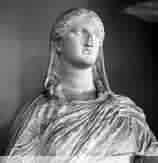
|
What is Theogony?Theogony means "birth of the Gods". The poet Hesiod in his "Theogony", explains that the Gods of the Hellenes are also made of the Primordial Substances, as everything else, instead of being demiurges and absolute regulators of the cosmogonic procedure or the cosmic structure. According to Plato, Gods are Gods primarily because they love and respect the Cosmic Law. Natural Law is common for all entities living in the infinite Cosmos; this explains why it is imperative for Man to conform to it, in order to attain bliss and deep pleasure. Once in the Divine level (attained as explained in Psychogony), the Psyche evolves further, in a non-linear manner, and with ever increasing difficulty, and becomes a Hero, a Demon, a God, an Olympian God and further on, achieving highs of divine glory that Man cannot conceive; this level is called, by the Hellenic religion, "The Night", meaning that we cannot see in it, nor understand it. In the Divine level, the Psyche retains its self, personality and character. Historically, our Gods and Goddesses have always been worshiped as persons with a living self. In summary, one can say that the Cosmos has an inherent tendency to
produce Conscience and develop it to the infinite highs of Divinity. This is the
evolutionary dogma of the Hellenic religion. In modern philosophical terms, this way of
evolution of the Cosmos would be best described as Chaotic determinism. Back |
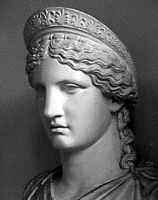
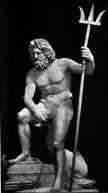
|



|
How and why does Man worship the Gods?
The worship of Gods and Goddesses differed greatly from place to place and from time to time. Hellenic antiquity cannot be viewed as uniform in this respect. Nevertheless, there were some standard characteristics of cults, throughout. A very important one is that there has never been any antagonism
among Gods (or their priesthood), for a special sacred place. For instance, Delphi is the
well known sanctuary of Apollo, but other Gods co-exist in peace, within the sacred field,
namely Gaia, Dionysos, etc. Exactly the same happens in Olympia, the Acropolis of Athens,
Eleusis etc. Back |
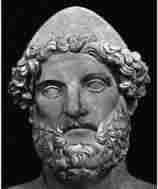
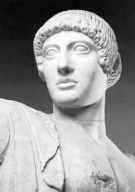
|

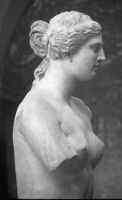

|
What is the place of the Gods/desses in the setting of the Cosmos?According to the Hellenic, and all traditional religions, the Gods do not create the Cosmos; on the contrary, they represent highest order products of the Cosmos. They cannot violate the Natural Law; on the contrary they observe and supervise the Law. The Natural Law has twelve divisions, six concerning the Continuous Substance, and six the Particulate. The Gods are autonomous radiant personalities, who supervise natural procedures and aspects of the Law of Nature, in general. Six Olympian Gods, of the male gender, supervise the laws of the Continuous, and six, of the female gender, supervise the laws of the Particulate Substance. The Law of Divine Spiritual Freedom, supervised by Zeus himself, is universal and wholly dominating the Divine Worlds. It is the ultimate criterion of action for the Goddesses and Gods. It should also reign in the human society. Generally speaking, human virtue can be viewed as compliance with the Laws of the Divine Worlds: Love, Freedom, Justice, Truth... The two sacred Essential Substances are of equal importance to the Cosmos; so are the Gods and Goddesses, Male and Female. The Gods have many different aspects, some very ancient in Cosmogony, more generalized and higher in order; other aspects have been established later, and are less generalized. This is the meaning of the Dodecatheon.
|


|
|
The Hellenic Olympian Religion of the Dodecatheon
Frequently Asked Questions on the Hellenic Religion |
|
Hellenic Religion - The Basic Principles The Hellenic Orphean Cosmology
|
|
Back to Top

